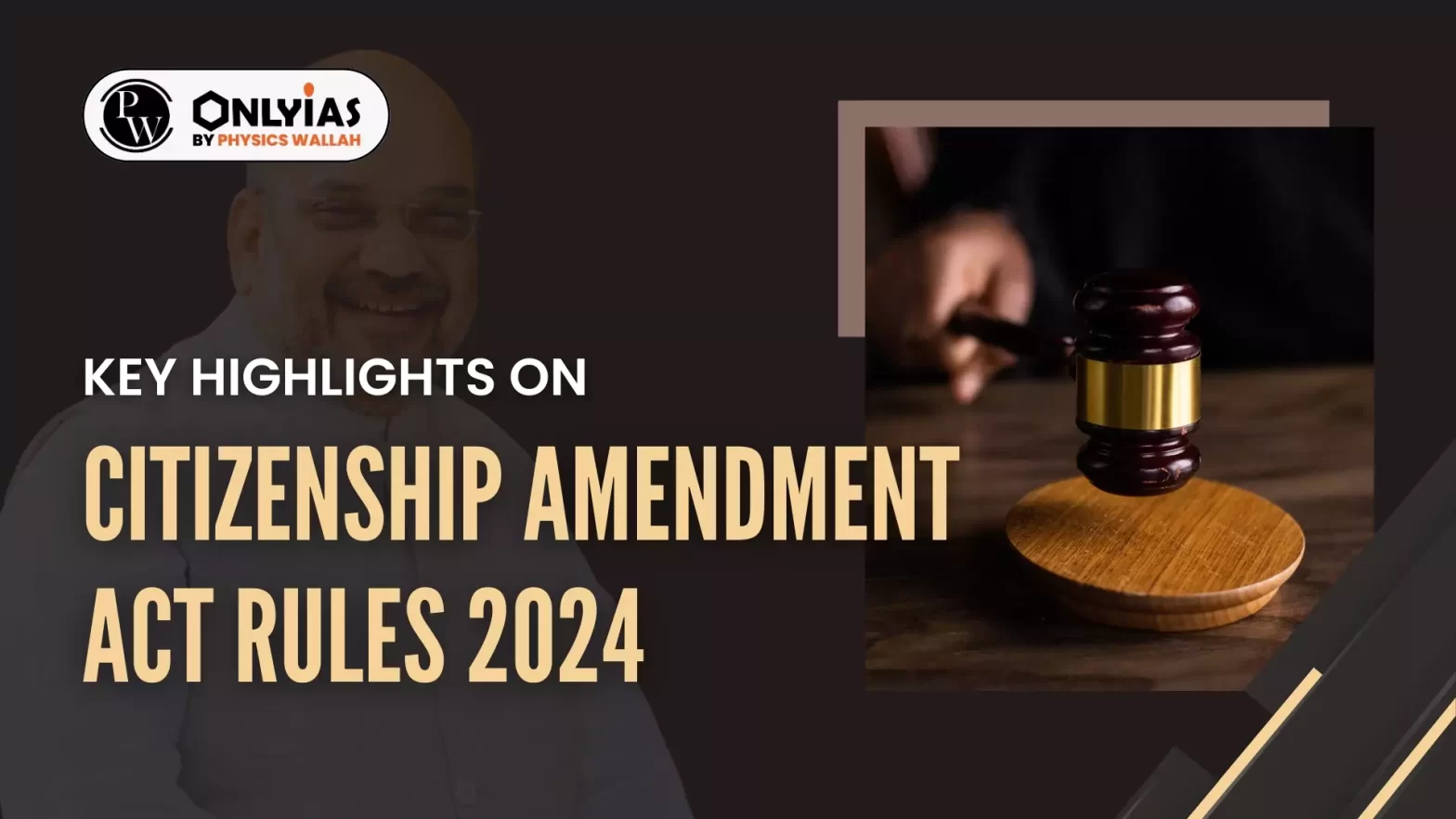![]() 12 Mar 2024
12 Mar 2024

This editorial is based on the news “Citizenship Amendment Act rules notified, four years after the law was passed” which was published in the Hindu. Recently, the Ministry of Home Affairs notified the Citizenship Amendment Rules 2024 that would enable the implementation of the Citizenship Amendment Act (CAA) passed by the Parliament in 2019.
| Relevancy for Prelims: Indian Citizenship, Indian Citizenship Act, and Citizenship (Amendment) Rules, 2024.
Relevancy for Mains: Citizenship Amendment Act (CAA)- Provisions, Concerns and Way Forward. |
|---|
| Prelims PYQ (2021):
With reference to India, consider the following statements: 1. There is only one citizenship and one domicile. 2. A citizen by birth only can become the Head of State. 3. A foreigner once granted the citizenship cannot be deprived of it under any circumstances. Which of the statements given above is/are correct? (a) 1 only (b) 2 only (c) 1 and 3 (d) 2 and 3 Ans: (a) |
|---|
| Must Read | |
| NCERT Notes For UPSC | UPSC Daily Current Affairs |
| UPSC Blogs | UPSC Daily Editorials |
| Daily Current Affairs Quiz | Daily Main Answer Writing |
| UPSC Mains Previous Year Papers | UPSC Test Series 2024 |
<div class="new-fform">
</div>